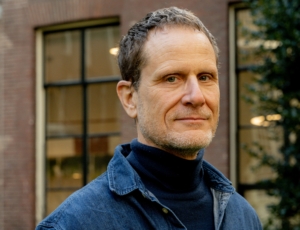What has driven you to work on your current research project?
A couple of years ago, I decided to never work on Venetian history again. I spent a lot of time in the Venetian archives and I was pretty fed up with it at that point. However, I came back to Venetian history because I thought that something had been overlooked: The standard story is that Venice has always been a stable and serene city-state (La Serenissima) and that the political power within Venetian society is shared between the political elite and a secondary elite (the Cittadini). But the more I looked at non-Venetian sources – primarily the letters of foreign ambassadors – the more occasions I encountered in which this is absolutely not the case. Counter-rituals, demonstrations, riots and rebellions have been much more influential in the political history of Venice than we usually think. We have lost sight of the political role of ordinary Venetians. So, the need to write an alternative history of Venetian politics has driven me back to the Venetian archives.
What are you working on today?
Today I am reading a letter from the papal ambassador. It is from the secret archive of the Vatican (although it is not that secret anymore). It is a description of something that happens at the end of 1589, when a famous alchemist arrives in Venice. He promises that he can turn mercury into gold and that he can cure all sorts of illnesses. This has basically allowed him to enter every court in Italy. The papal ambassador is very concerned about his arrival in Venice and reports the alchemist’s activities back to Rome. This alchemist was given the opportunity to demonstrate his art to the doge and the political elite. They were quite convinced about the effectiveness of his work, but at the same time people were protesting against him in the squares, singing that he was a fraud. After I am done with my current research project, I would like to write a book about this man, who essentially ran a highly effective Ponzi scheme for a decade or so. That is, until he was executed.
Why Venice?
I think the political history of Venice can have a broader impact for two reasons: Even after I have shown the intensity of popular protest and the frequency with which demonstrations occurred, it is still a fact that the political structure remained essentially the same for almost five centuries. So there seems to be something specific about Venice. There have been lots of moments of intense protests, but these have never caused a regime change. I think that has to do with the very complicated electoral system of Venice, in which there are so many elections that there will always be a next one. This makes it a very dynamic system, able to absorb political unrest.
The other reason for choosing Venice is that I am intrigued by the fact that historians have not really picked up on the popular element within Venetian politics. They know it exists elsewhere, but for Venice it has not been taken seriously into account. Since the late middle ages, incidents such as demonstrations and rebellions are always filtered out of the official histories of Venice. They are erased from the central story and so I am also interested in this process of collective forgetting, which has basically continued until the present.



